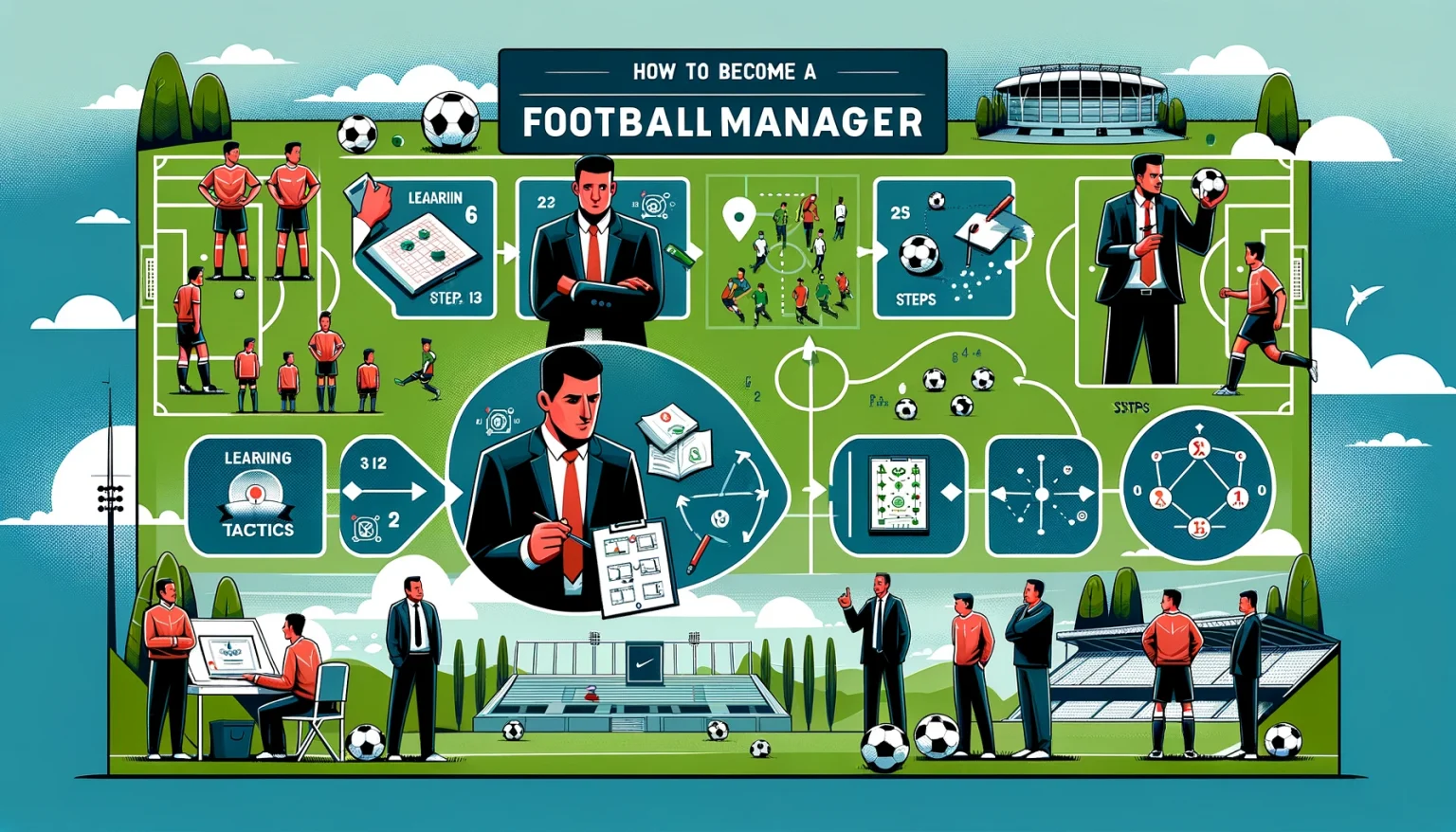If you have ever thought about a career in sports, including football, but for some reason you cannot become a professional football player, you can still get a position in the management of a football club. For example, become a football manager. Despite the fact that a football manager is not such a prominent and well-known figure as a coach, he still plays a very important role in the work of a football club, especially in the top leagues. Let’s find out who he is and what functions he performs. And most importantly, we will find out what it takes to become a football manager.
Who is a football manager?
A football manager is a person responsible for managing a football team. A football manager can work in different leagues and levels. His success and career growth often depends on his abilities to communicate with players, adapt to changes in the game and respond to the demands of the club and fans. His responsibilities include:
- Tactical planning, which involves developing strategy and tactics for matches, analyzing the sports training of the team and opponents.
- Selection of players, namely signing contracts with new players, working with the selection department to improve the team.
- Organization of the training process, working with players on their physical and tactical training.
- Meetings with the club management, including discussion of the budget, financial issues and the general goals of the club.
- Raising the team’s morale, working with players on a psychological level.
Football manager qualifications can vary depending on the country and level of the team, however there are a number of general requirements and skills that may be important for the role and will help you become a good football manager.
- Education. A university degree in physical education, sports, management or a related field can be helpful. Specific courses in coaching or sports management will also add value to your resume.
- License. Many countries require a coaching license. For example, in Europe, this may be a UEFA license, which has several levels (from UEFA C to UEFA Pro). Having a license confirms that the specialist has completed training and has the necessary knowledge and skills to work at a certain level.
- Experience. Experience in football, whether as a player, assistant coach or coach of a team of any level and skill level, is preferred. Experience in team management or sports administration would also be useful.
- Knowledge of tactics and strategies. A deep understanding of football tactics, strategy and rules of the game, as well as the ability to adapt to changes in the game, is very valuable for a position such as a manager.
- Management and leadership skills. This is not only the ability to manage a group of people, but also the ability to make decisions under pressure and communicate effectively with players, staff and club management.
- Analytical skills. The ability to analyze the team’s and opponents’ play, use statistics to improve the game and to make and justify decisions.
- Communication skills, that is, the ability to communicate effectively with players, coaching staff and club management, as well as with journalists and fans.
- Knowledge of the basics of sports psychology and the ability to motivate a team, create a good atmosphere within the team.
In general, a football manager is a multi-skilled professional who requires a combination of knowledge in football, management, finance and strategic planning. An effective manager can significantly influence the success of a club in both the short and long term.

Is a football coach and a football manager the same thing?
It is worth noting that a football manager is often confused with a football coach. In some clubs these roles may overlap, with one person performing both manager and coaching duties. However, in most clubs they are separate, with each having their own specific tasks. For example, in English clubs the term “manager” is often used to include the functions of a coach, while in other leagues (such as Italy or Spain) the term “coach” may be more common and include more specific functions. So, in some cases, a manager can also be a coach, but in most modern clubs these roles are clearly distinguished.
The first and one of the main differences that distinguishes these two positions is the set of their responsibilities. As mentioned above, a football manager usually has a wider range of responsibilities, including managing the entire team, handling player transfers and contracts, budgeting and administrative matters. A manager may be involved in strategic planning and long-term development of the club. He often has more administrative and management responsibilities, which may include interaction with club management, agents and the press. At some clubs, the manager also deals with personnel matters, including the appointment of coaches and staff. Typically, he makes the bigger decisions regarding the team’s composition, finances and the club’s overall strategy.
On the other hand, a football coach usually focuses on preparing the team for matches, developing training plans, game tactics and directly coaching the players. He focuses on the training process, choosing the starting lineup for matches, preparing the team and analyzing the opponents’ game. The coach may be responsible for tactical decisions during matches. The coach is responsible for the team’s sporting success on the pitch. He is focused on specific aspects of the team’s preparation and may report to the manager in matters relating to transfers and general club strategies.
What do you need to become a football manager?
Becoming a football manager is an ambitious goal that requires a combination of education, experience and skills. If you are not afraid of all the tasks that you have to perform, and you are determined to try yourself in this role, then here are a few steps that will help you in the process of becoming a football manager:
- Get an education in sports management, sports science, business, or a related field. Focus on courses and programs that offer knowledge about football, sports management, team management, and marketing. Additional education will be your competitive advantage.
- Gain game practice. Having experience playing soccer at a professional or non-professional level will give you valuable insight into the game. And participating in team competitions and tournaments will help you build relationships and understand team dynamics.
- Start by working in entry-level positions at football clubs, such as assistant coach, analyst or player relations specialist. These jobs will give you practical experience and skills, as well as the opportunity to learn by doing.
- Take courses and obtain the necessary licences for football managers (for example, UEFA coaching licence), which will improve your skills and give you a competitive advantage.
- Network with professionals in the sports industry by attending football meetups, seminars and events, and join professional associations to meet other managers and coaches.
- Work or volunteer at youth academies or local football clubs to gain experience in team management and training. Volunteering for a club can also help you network and get recommendations.
- Explore successful tactics and styles of play by analysing the work of famous football managers. The ability to analyse games and statistics will help you better understand how to build a successful team.
- Once you have gained experience and qualifications, you may be able to move into positions at high-tier clubs or leagues. Be prepared to continually learn and adapt to changes in the world of football management.
A football manager for a professional team should ideally have football coaching qualifications and experience. You can start your coaching pathway with a local youth team or a university team. However, coaching qualification is also required here. Let’s now figure out what it takes to become a football coach.
In football, there is a coaching badge program that has several levels. The FA coaching badge is a program developed by the Football Association (FA) of the UK to train coaches. Each level helps improve the skills of coaches and their ability to develop players at different stages of their careers. The cost of each course may vary slightly depending on the country where it is taught, so average prices will be given here.
- FA Level 1. This is the entry level where coaches learn the fundamentals of coaching, including basic techniques and methods. This coaching football level can be taken as online course. It costs £150.
- FA Level 2. An advanced level focusing on more complex training methods and individual work with players. Average price £320.
- FA Level 3 or UEFA B. This level of coaching helps to develop a deeper understanding of the game, tactical aspects and leads to a higher level of training. Approximate cost £550.
- FA Level 4 or UEFA A. Training of coaches to work at a professional level, including strategic planning and team management. It costs £720.
- The UEFA Pro Licence is the highest qualification for football coaches awarded by UEFA. FA UEFA Pro Licence is required for coaches working at a professional level, including coaches of top league clubs and national teams. This level is the most expensive and costs £3000.


